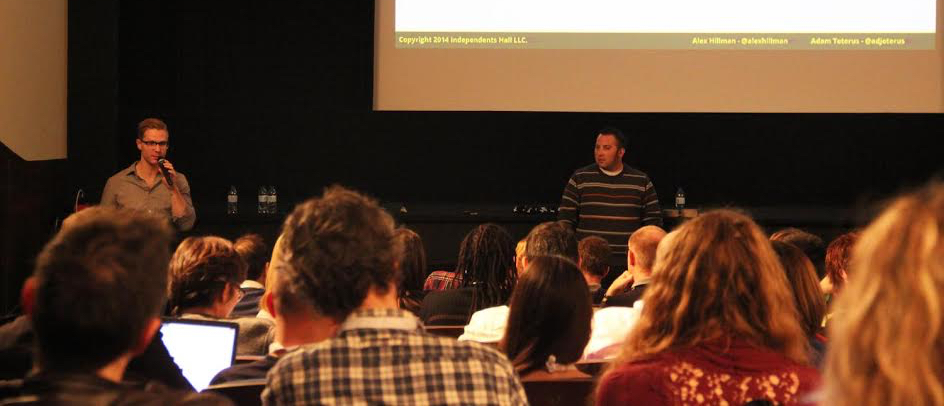Big, open, funky workspaces. Young, creative entrepreneurs. Low cost, easy access, no commitment...these are just a few of the many stereotypes about coworking and what makes it great. But like most stereotypes...things are not always what they seem.
If you follow these stereotypes blindly, you’re in for a rude awakening: slow or stagnant growth, awkward and uncomfortable conflicts amongst your community, and unsatisfied members who feel like it's easier to just stay home.
You might've noticed that it's hard to get the word out to prospective members about your collaborative workspace. Advertising and existing marketing doesn't seem to work. It turns out...most of them are working at home, by themselves. Posting to office listings doesn't seem to attract people who aren't already looking for an office - so how can you reach and connect with the best kinds of potential members?
You've learned about "meetups" and "community memberships", but what makes them different from "events" and "renters"? Is it just newfangled jargon? Events seem to be the lifeblood of collaborative workspaces, but how can you know which events are people going to come for...and want to stay? If the experience doesn't match the lingo... prospective coworkers you work so hard to get in the door are never coming back.
And as you grow - if you get that far - you need to start thinking about scaling. Coworking seems to require a different "touch". What happens to a coworking community as it grows? What new challenges will you face? The clock is ticking to figure out how to scale your customer service in a way that keeps your coworking members satisfied, coming back, and inviting their friends. How many "community managers" do you need to throw at the problem to keep things running smoothly?
It's time to set the record straight about what makes coworking spaces succeed...and what makes them fail.
In this workshop, you will learn:
What are people actually paying for when they join a coworking space? What makes it different from a business center?
The difference between customers & members
How your approach to "sales" can be a turn-off to potential community members, and what really makes members sign up.
Flipping your customer service model on its head, and how to empower the community members to help each other
How all of these changes make a coworking business model so powerful, and future-proof
Learn it all from the leaders of a world-class coworking space as Alex Hillman and Adam Teterus teach you how to cut through the noise around coworking and show you how start creating more successful, thriving, shared workspaces.

Reserve Your Seat Now!
Price:
3 hour professional workshop for just $89/person (reduced to $49 for GWA members)
Discounts also available for groups of 2 or more - bring your operations or community team, too!
Special thanks to the support of the Global Workspace Association and our sponsors, we're able to bring this workshop to six cities across the US for these very low prices!
Dates & Locations
Join us in Boston, New York, Washington DC, San Francisco, Chicago, & Miami. Please note specific times for your city!
May 26-29: Northeast Corridor Tour
Buy your seat in Boston - Tues May 26, 2pm-5pm
Get a quick taste now with these 2 quick tips for collaborative space operators.
Workbar CEO Bill Jacobson with Workshop co-host Alex Hillman catch up in this quick 6 minute video.
Learn about "calling the ball" while commuting or working out at the gym
Collaborative spaces aren't all sunshine and lollipops. Listen to this recent episode The Coworking Weekly Show where workshop co-host Adam Teterus brings the emotional truth about how he solves tough problems at Indy Hall. It's just the right length for a workout or a commute!
You can also listen to more previous episodes of The Coworking Weekly Show, or listen & subscribe for free to future episodes on iTunes.